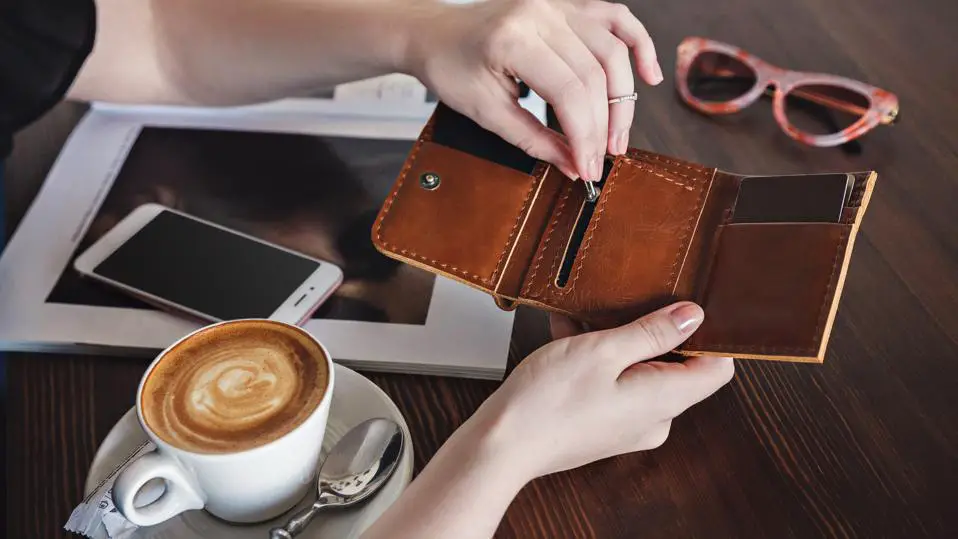It’s completely acceptable to avoid getting a credit card. Consumers can pay entirely with cash, check or debit card and still build a positive credit history through other types of loans. According to a 2020 report by the Federal Reserve, 79% of U.S. consumers had at least one credit card, which could mean as many as 21% of U.S. consumers survive without one. Anyone can use cash to make purchases or get a debit card from a bank for added convenience.
However, despite there being ways to get around not having a credit card in the U.S., there are cons to doing so. Here’s what you need to know if you decide to live a life without plastic.
Cons to Not Having a Credit Card
Forgoing credit cards can make it difficult to build a decent credit history with a good credit score. Typically, college students (or even proactive high school students, if parents cosign or add them as authorized users) get a first credit card in school, which enables an early start to building a credit history. Once they’re ready to buy a car with an auto loan or purchase a house and take out a mortgage, their credit history should be deep enough that it’s possible to be approved for a loan. Without this kind of history, it can be difficult to make large financial purchases later in life.
Using only cash or a debit card can have limited rewards potential, as well. One of the perks of owning a credit card is receiving rewards or cash back on groceries, gas or travel purchases. Some U.S. banks offer small rewards with debit cards, but it can be difficult to find rewarding debit cards.
One other con to using only debit cards is that they don’t offer the same type of purchase or fraud protection. Refunding fraudulent purchases to a checking account can take longer or may not happen at all depending on the bank or situation.
And finally, activities such as renting a car or staying in a hotel room can be more complicated if you only use a debit card. Some companies will take a hefty deposit from your checking account if you use a debit card, which could tie up your money for days.
Ways Around Not Having a Credit Card
Despite some significant cons, there are ways to build good credit and maintain a healthy financial history without signing up for a credit card:
- Use cash or a debit card to limit spending. When only cash or a debit card is available, the cash or cardholder can only spend from pocket or bank account. It’s nearly impossible to spend more than what’s there. This can be an effective form of budget discipline. Debit cards are also more convenient than cash, especially for making online purchases.
- Build credit by paying other loans or bills on time. Student loans or a car loan cosigned by a parent still count toward the loanholder’s credit history. On-time payments can benefit a loanholder’s credit score, but it may take longer to build good credit this way. Paying other bills on time like rent, utilities, phone or cable can sometimes count toward credit history. Although these payments are not normally reported to credit bureaus, there are free programs that can enable that. For example, Experian offers a free program called Experian Boost that will add positive bill payment history to an Experian credit report.
- Become an authorized user. Becoming an authorized user on someone else’s credit card account does not require the user to get their own credit card account. This can be a useful workaround for people who have a responsible friend or family member who’s willing to help them build their credit history. As an authorized user, the user will get all the benefits to a positive credit history and credit score as long as the primary account holder makes their payments on time and pays off their balance every month. Before becoming an authorized user, make sure the credit card issuer reports authorized user activity to credit bureaus.
- Get a credit builder loan. Credit builder loans help people build good credit history as long as they make on-time payments every month. When approved for a credit builder loan, the lender will hold a small or large sum of money that the loaner must pay off in installments. Once they pay off the entire loan, all of the money will be released to the loaner, which can then be placed into a checking or savings account. This is not generally the best way to build credit, as there is a cost, but it is an option available.
Bottom Line
It’s possible to avoid getting a credit card, but it may not be the best option depending on financial goals. There are ways to build good credit without one, however—like applying for a credit builder loan, becoming an authorized user and building credit by paying other bills on time. However, using only cash or a debit card to make payments has its drawbacks. Debit cards don’t offer the same type of purchase or fraud protection and they often don’t have the same cashback rewards or sign up bonuses. Make sure to research all the benefits and drawbacks to not having a credit card before foregoing one entirely.

